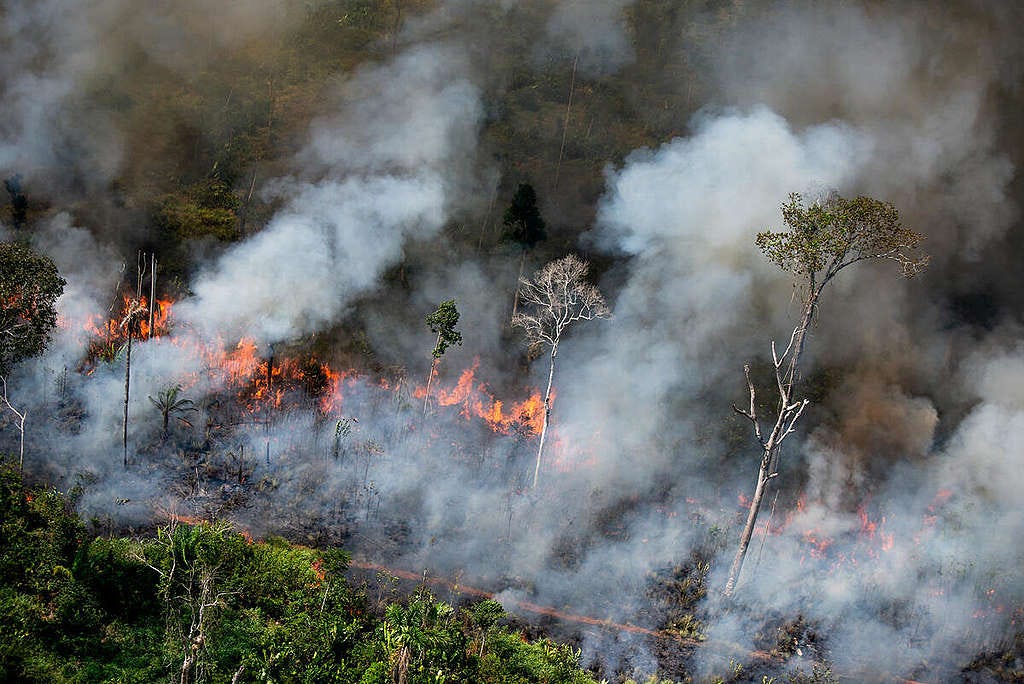Hello and welcome! 👋
Thank you for taking the time to read the newsletter. Stay curious, Sara x
PROTECTING THE AMAZON
Deforestation in Brazil’s Amazon Basin is increasing at a rapid rate. Destruction of the rainforest within the country rose 43% in April from a year ago, according to government data.
That statistic is alarming because the drier season, from June to November, is typically when burning and logging peak. As a result, scientists are once again warning of a tipping point beyond which the Amazon ecosystem will be irreparably damaged.
The fate of the planet’s largest rainforest has been generating headlines under Jair Bolsonaro’s administration. The right-wing climate change sceptic, who came to power in 2019, has encouraged commercial development - or exploitation (depending on your political stance) - of the Amazon. The Brazilian leader also cut the budget of the country’s main environmental protection agency and wants regulations loosened further.
The reasons for this are twofold: 1. Brazil is a huge producer of beef, corn, coffee and soybeans - and razing the Amazon is an easy way to grab land for agri-commodities; 2. The Amazon includes some of Brazil’s poorest states, which makes illegal farming activities attractive to many.
There are signs that international pressure, particularly from President Joe Biden, is pushing Bolsonaro to change tack. He joined the White House’s virtual Earth Day summit and promised “zero illegal deforestation” in Brazil by 2030. But Bolsonaro’s approach to the matter is rather cynical - he’s now asking for US$1 billion worth of aid money. His environment minister claims the cash is needed to start “a positive cycle of taking care of the region”.
As expected, NGOs and diplomats are doubtful about these pledges. They say Bolsonaro and his cabinet have yet to offer credible plans or realistic targets. Secondly, it’s possible Brazil’s government will simply alter the meaning of “illegal” when it comes to the Amazon. A bill that’s in the works would actually legalise the private occupation of public land in the last decade.
In an open letter, dozens of supermarket companies, food suppliers and investment firms urged Brazilian politicians to reconsider the legislative proposal since it poses "potentially even greater threats to the Amazon than before".
THE WORLD’S FACTORY
Geopolitical tensions are not undermining demand for Chinese products. Exports from the PRC in April jumped 9.4% from the previous month to almost US$264 billion.
Analysts say the pace of growth “surprised on the upside” due to the improving economic picture in the US and Covid-related factory delays in other hubs, such as India.


Despite strained relations with Washington and Canberra, China’s National Bureau of Statistics recorded an expansion in trade with both the US and Australia.
However, China’s prowess in consumer electronics and high-tech goods could be hampered by various supply constraints, notably the global chip shortage. Another concern for Chinese manufacturers is whether the end of lockdown-fuelled shopping sprees will dent sales in the next quarter.
For the moment, the forecasts suggest exports will remain strong into the second half of 2021, underlining China’s status as “the world’s factory”.
Remember you can follow Deep Dive on Instagram for additional content and daily updates. Click the button below.




